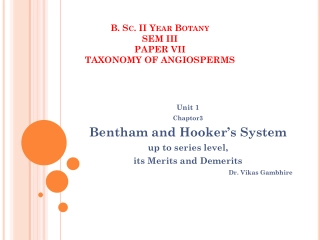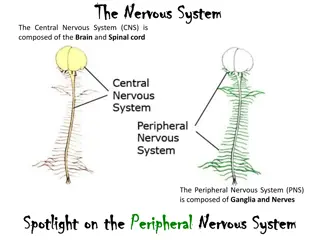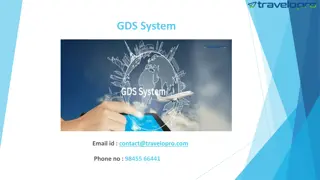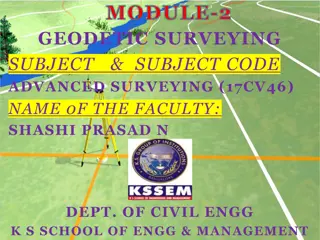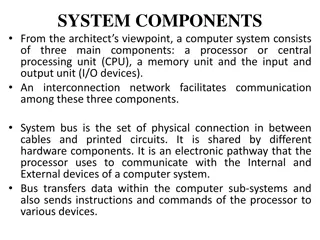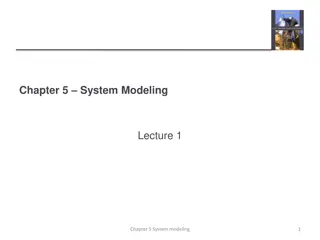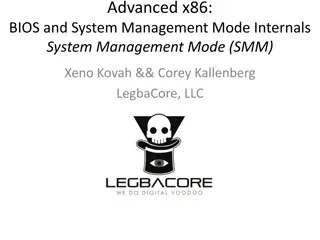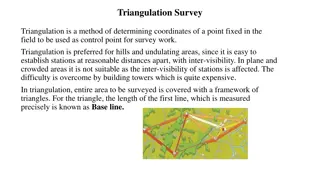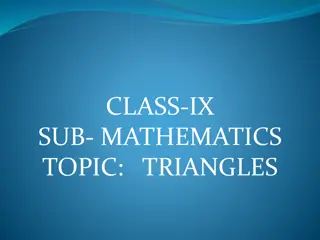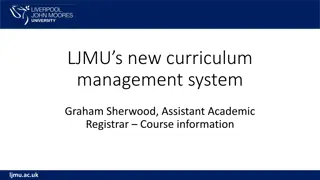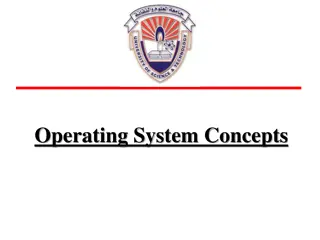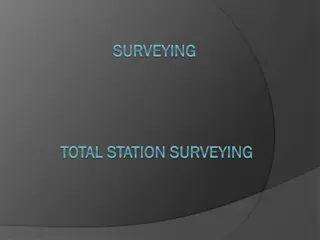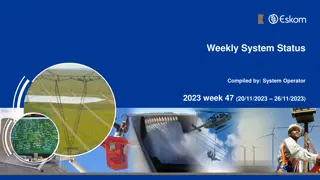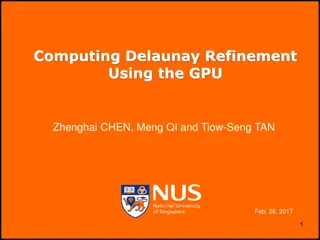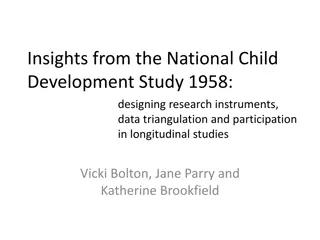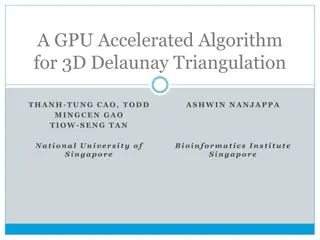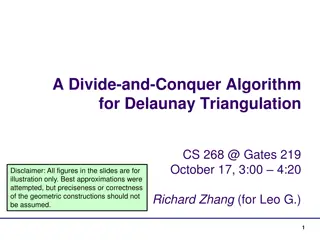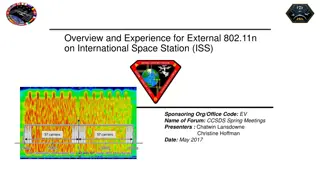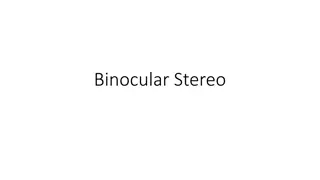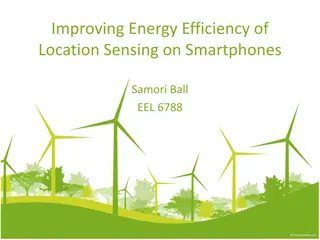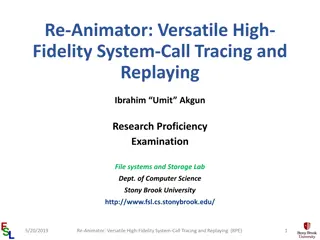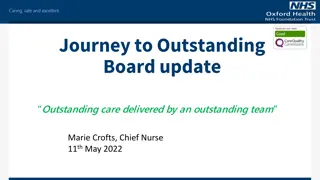Bentham and Hooker's System of Classification in Botany
Bentham and Hooker's system of classification in botany is a natural system based on a large number of characters considered simultaneously. Proposed by British taxonomists George Bentham and Joseph Dalton Hooker, this system categorizes seed plants into classes, orders, families, and genera. It is
2 views • 10 slides
Overview of ESRF-EBS 352 MHz RF System Upgrade at 26th ESL RF Meeting
The 26th ESL RF Meeting held at Elettra in Trieste discussed the status and upgrades of the ESRF-EBS 352 MHz RF system. The meeting covered topics such as the EBS RF layout, HOM damped cavities, RF ECO-Mode, ongoing RF projects, and the replacement of klystrons with SSAs for a 4th harmonic RF system
0 views • 16 slides
adonai software
Adonai college Management System is a cloud-based ERP System that delivers various College and School Management Systems, College and School Management Software, College and School Management System ERP, College and School Management Software System, Online College and School Management Software Sys
3 views • 1 slides
Costing Out Approaches
Costing out approaches and studies have been developed to ensure schools and districts have adequate resources to meet state education standards. Implementing these approaches involves professional judgment, evidence-based benchmarks, and data requirements. Using multiple approaches allows for trian
0 views • 12 slides
System Models in Software Engineering: A Comprehensive Overview
System models play a crucial role in software engineering, aiding in understanding system functionality and communicating with customers. They include context models, behavioural models, data models, object models, and more, each offering unique perspectives on the system. Different types of system
3 views • 33 slides
Understanding the Nervous System: CNS, PNS, SNS, and ANS
The nervous system comprises the Central Nervous System (CNS) and Peripheral Nervous System (PNS), with the PNS further divided into the Somatic Nervous System (SNS) and Autonomic Nervous System (ANS). The SNS controls voluntary movements of skeletal muscles, while the ANS regulates involuntary proc
2 views • 23 slides
The muscular system
The muscular system is a vital organ system that includes smooth, skeletal, and cardiac muscles. It plays a crucial role in locomotion, supporting the cardiovascular system, enabling lung ventilation, regulating fluids, maintaining posture, and generating heat in the body. This system consists of ar
2 views • 16 slides
Understanding Control Systems in Ergonomics Macro
Control systems play a vital role in regulating and managing various processes within different industries. This content delves into the fundamentals of control systems, discussing terms like input, output, plant, process, system, open-loop system, closed-loop system, transfer function, feedback con
7 views • 15 slides
GDS System
Travelopro Global Distribution System (GDS) is a computerized network system. It is a large computer network which is integrated with 100 of worldwide Airlines and consolidators for enabling transactions between travel agents and travel sites and also used by airlines, hotels, car rentals, railways
4 views • 15 slides
Understanding the Immune System: Organs, Functions, and Importance
The immune system acts as a defense mechanism against pathogens and infections, comprising various organs, such as the bone marrow, thymus, spleen, white blood cells, antibodies, complement system, and the lymphatic system. It works to recognize and destroy harmful microbes, maintaining the body's h
1 views • 23 slides
Geodetic Surveying and Triangulation System Overview
Geodetic surveying involves determining precise positions on the Earth's surface, while triangulation is a method that uses interconnected triangles for accurate measurements. The principles of the triangulation system aim to establish horizontal points for various surveys and assist in determining
2 views • 23 slides
Evolution of Land Law Systems in Trinidad and Tobago
Trinidad and Tobago's land law systems consist of the Common Law System and the Registered Land System. The Common Law system governs unregistered land where title passes upon execution and delivery of the deed. In contrast, the Registered Land System confers ownership upon registration and offers c
0 views • 28 slides
Understanding Computer System Buses: Components and Functions
A computer system comprises three main components - the CPU, memory unit, and I/O devices connected via an interconnection network, facilitated by the system bus. System buses reduce communication pathways, enabling high-speed data transfer and synchronization between components. Internal buses conn
3 views • 55 slides
Understanding System Modeling in Engineering
System modeling in engineering involves developing abstract models to represent a system from various perspectives using graphical notations like UML. These models aid in understanding system functionality, communicating with stakeholders, and documenting requirements for new systems. Existing and p
2 views • 53 slides
Rapid Identification System for Inmate Release
The Rapid Identification System, also called Rapid ID System, provides a quick way to verify an inmate's identity using fingerprints before release from custody. It allows law enforcement agencies, including IPD users under SDSheriff, to log in and access the system. By searching the San Diego AFIS
3 views • 8 slides
Understanding System Management Mode (SMM) in x86 Processors
System Management Mode (SMM) is a highly privileged mode in x86 processors that provides an isolated environment for critical system operations like power management and hardware control. When the processor enters SMM, it suspends all other tasks and runs proprietary OEM code. Protecting SMM is cruc
1 views • 26 slides
Ensuring Trustworthiness in Qualitative Research Studies
Trustworthiness in qualitative research is essential for establishing confidence in the study outcomes. Guba's four criteria - credibility, transferability, dependability, and confirmability - provide a framework for achieving trustworthiness. Strategies such as adopting reliable research methods, u
3 views • 10 slides
Revolutionizing Paper Mill Operations with AutoRate System by P.L.C
AutoRate system by P.L.C offers a superior alternative to manual feed rate control in paper mills, addressing issues of operator variability and inconsistent system responses. By utilizing a Virtual Controller based on inherent system values, the system enhances overall consistency and efficiency, r
2 views • 12 slides
Understanding Triangulation Survey in Land Surveying
Triangulation survey is a method used to determine precise coordinates of fixed points in the field, especially in hilly areas. It involves establishing stations at reasonable distances apart to form a framework of triangles covering the entire survey area. Key operations include reconnaissance, ere
1 views • 20 slides
Understanding Triangles: Importance and Applications in Engineering
Triangles play a crucial role in engineering by providing structural strength and stability. Unlike rectangles, triangles cannot be deformed without altering their sides or breaking their joints. They are used in various constructions like bridges, domes, and pyramids. Triangulation using triangles
3 views • 30 slides
LJMU's New Curriculum Management System Project Overview
LJMU's new curriculum management system project aims to streamline course information production and storage by implementing the Courseloop system. The project timeline includes releases for data governance, migration, testing, and training leading up to the system's go-live in September 2022. The p
1 views • 8 slides
Understanding Operating System Concepts: Lecture Overview and Services
Exploring the lecture content on operating system concepts, structures, services, system calls, and file manipulation. Delve into the importance of operating system services, error detection, program execution, I/O operations, protection, security, and resource allocation in operating systems. Learn
4 views • 26 slides
Understanding Surveying Principles and Instruments
Surveying involves determining and recording earth features' relative positions, utilizing instruments like total stations, digital levels, and GPS for linear, angular, and height measurements. Different types of surveys include traverse, triangulation, and plane table. Advantages of digital levels
5 views • 26 slides
System Sequence Diagrams: Understanding Artifact for System Behavior
System Sequence Diagrams (SSDs) are vital artifacts that visually illustrate input and output events related to a system. They help define system behavior and interactions, making them essential during the logical design phase of software applications. By depicting events in sequential order, SSDs o
2 views • 24 slides
Weekly System Status Update: Adequacy of National Electricity Supply (Week 47, 2023)
This weekly system status report compiled by the System Operator provides insights into the National Electricity Supply System's adequacy in the medium term. It includes data on historic daily peak system capacity/demand, available dispatchable generation, operating reserve margin, forecast vs. actu
1 views • 14 slides
GPU-Accelerated Delaunay Refinement: Efficient Triangulation Algorithm
This study presents a novel approach for computing Delaunay refinement using GPU acceleration. The algorithm aims to generate a constrained Delaunay triangulation from a planar straight line graph efficiently, with improvements in termination handling and Steiner point management. By leveraging GPU
0 views • 23 slides
Insights from the National Child Development Study: Research Instruments, Data Triangulation, and Longitudinal Participation
This research delves into the design of research instruments, data triangulation, and participation in the National Child Development Study of 1958 British birth cohort. The study covers the qualitative data collected up to 2008, with a focus on perennial participants, non-participants, frequent par
0 views • 15 slides
GPU Accelerated Algorithm for 3D Delaunay Triangulation
Thanh-Tung Cao, Todd Mingcen Gao, Tiow-Seng Tan, and Ashwin Nanjappa from the National University of Singapore's Bioinformatics Institute present a GPU-accelerated algorithm for 3D Delaunay triangulation. Their work explores the background, related works, algorithm implementation, and results of thi
0 views • 24 slides
Overview of UNIX System Protection
UNIX System Protection focuses on ensuring security and access control mechanisms within the UNIX operating system. Developed in 1969 by Dennis Ritchie and Ken Thompson at AT&T Bell Labs, UNIX features design elements like a portable API, protection rings, kernel processes, and a trusted computing b
0 views • 12 slides
Divide-and-Conquer Algorithm for Delaunay Triangulation
Delaunay triangulation using a divide-and-conquer approach involves sorting input sites, dividing them into halves, recursively building Delaunay for each half, adding cross edges between the halves, and recombining by removing certain edges. Key steps include building cross edges in linear time and
2 views • 48 slides
Overview of External Wireless Communication System on International Space Station (ISS)
This presentation covers the overview and experience of implementing an external 802.11n wireless communication system on the International Space Station (ISS). It discusses the existing wireless system, committed users, system architecture, and future challenges. The system provides high data rate
0 views • 18 slides
Exploring Binocular Stereo Vision: Depth Perception and Correspondence Challenges
Delve into the fascinating world of binocular stereo vision, where depth perception is estimated through triangulation and trigonometry. Discover how vision pioneers like Leonardo da Vinci and Wheatstone laid the foundation for aerial photography and the creation of Julesz's Random Dot Stereograms.
0 views • 6 slides
PIP-II High Power RF Distribution System Overview
The PIP-II High Power RF Distribution System is a collaborative project involving various countries and institutions to develop a sophisticated system capable of efficiently distributing RF power to superconducting cavities. The system consists of multiple distribution lines and components designed
0 views • 28 slides
Enhancing Smartphone Location Sensing Efficiency
This study delves into optimizing energy consumption in smartphone location sensing mechanisms like GPS and Network Based Triangulation. Comparisons of battery drainage rates with and without GPS provide insights. Additionally, the energy efficiency of Network Based Triangulation as a less accurate
1 views • 41 slides
Long-Baseline Neutrino Facility (LBNF) Primary Beamline LCW System Overview
The Long-Baseline Neutrino Facility (LBNF) Primary Beamline Low Conductivity Water (LCW) System comprises various technical design aspects including system operational scope, major system updates, design requirements, and component summary. It involves the provision of LCW cooling for magnets and po
0 views • 14 slides
Re-Animator: Versatile System Call Tracing and Replaying
Re-Animator is a research project focusing on creating a high-fidelity system call capturing system with minimized overheads. The project aims to capture long-running applications and provide scalable and verifiable system call replaying. It introduces two prototype system call tracing systems and h
0 views • 39 slides
Exploring Geometric Beauty Through Triangulation and Optimization
Delve into the world of triangulation of point sets on the plane, emphasizing the importance of maximizing the minimum angle to avoid skinny triangles. Discover the mathematical structures that allow for efficient optimization and the beauty of symmetry in labyrinth and Triakis tilings. Learn about
0 views • 23 slides
Strategies for Enhancing Extended Producer Responsibility System in Bulgaria
Korea-Bulgaria Knowledge Sharing Program focused on sharing strategies to enhance Bulgaria's Extended Producer Responsibility (EPR) system. The program discusses the current status, performance evaluation, issues, and recommendations related to the EPR system in Korea. It covers topics like beverage
0 views • 38 slides
Transforming Healthcare: Journey to Outstanding Care
Embark on a transformative journey towards outstanding healthcare delivery led by a dedicated team. Through meticulous self-assessment, peer reviews, and continuous improvement, the focus remains on providing caring, safe, and excellent care. Explore the phases of this journey, including CQC self-as
0 views • 21 slides
Ahti Nautical Chart Production and Data Management System Overview
Ahti Nautical Chart Production and Data Management System, led by Kalle Hyyrynen, aims to modernize nautical chart production by utilizing standardized products, improving system technology, and enhancing data management. The project addresses challenges such as outdated technology, integration need
0 views • 7 slides
